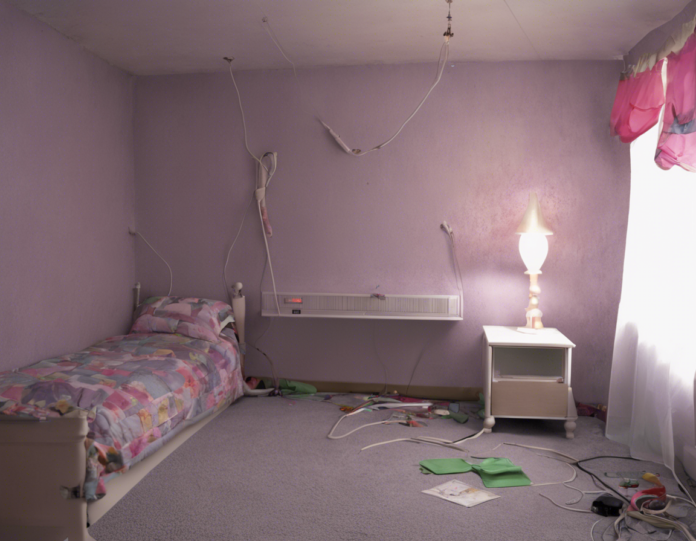Water leaks in the bedroom can be a homeowner’s worst nightmare. Not only can they cause extensive damage to your property, but they can also pose health risks due to mold and mildew growth. It’s crucial to take preventive measures to protect your bedroom from water leaks. In this comprehensive guide, we will discuss essential tips to prevent water leaks from damaging your bedroom.
Understanding the Causes of Water Leaks in the Bedroom
Water leaks in the bedroom can occur due to various reasons, including:
1. Plumbing Issues
Faulty plumbing fixtures, such as leaky pipes, faucets, or water heaters, can lead to water leaks in the bedroom.
2. Roof Leaks
Damaged or improperly installed roofs can allow water to seep into your bedroom, causing damage to walls, ceilings, and furniture.
3. Poor Insulation
Inadequate insulation in the attic or walls can result in condensation and moisture buildup, leading to water leaks.
4. Window and Door Seals
Worn-out or damaged seals around windows and doors can allow water to enter your bedroom during rainy weather.
Essential Tips to Prevent Water Leaks in Your Bedroom
1. Regular Maintenance
Regular maintenance of plumbing fixtures, roofs, and insulation is vital to prevent water leaks. Inspect pipes, faucets, and water heaters for any signs of leaks and have them repaired promptly.
2. Roof Inspections
Have your roof inspected regularly by a professional to identify and address any issues, such as missing shingles or deteriorating flashing, that could lead to water leaks.
3. Proper Ventilation
Ensure proper ventilation in your bedroom to reduce condensation and moisture buildup. Use exhaust fans in bathrooms and kitchens to vent out excess humidity.
4. Seal Windows and Doors
Check and repair the seals around windows and doors to prevent water intrusion. Consider adding weather-stripping or caulking to seal any gaps or cracks.
5. Monitor Water Usage
Keep an eye on your water bill for any unexpected increases, as this could indicate a hidden water leak. If you notice a spike in water usage, investigate the cause immediately.
6. Install a Leak Detection System
Consider installing a leak detection system in your home that can alert you to any water leaks before they cause significant damage. These systems can help you take prompt action to address leaks.
7. Insulate Pipes
In colder climates, insulate exposed pipes to prevent them from freezing and bursting during winter. Frozen pipes can lead to water damage in your bedroom and throughout your home.
8. Address Exterior Drainage Issues
Ensure that your home’s exterior has proper drainage to prevent water from pooling around the foundation and seeping into your bedroom. Gutters and downspouts should be clear of debris to allow water to flow away from the house.
9. Monitor Humidity Levels
Keep humidity levels in your home between 30% and 50% to prevent excess moisture that could lead to water leaks and mold growth. Use a dehumidifier if necessary.
FAQs (Frequently Asked Questions)
1. How can I tell if I have a water leak in my bedroom?
Signs of a water leak in your bedroom include water stains, mold growth, musty odors, peeling paint, and warped walls or ceilings.
2. Should I hire a professional to inspect for water leaks in my bedroom?
If you suspect a water leak but cannot locate the source, it’s advisable to hire a professional plumber or water damage restoration expert to conduct a thorough inspection.
3. How can I prevent water leaks from my ceiling?
Regularly inspect your roof for any damage or missing shingles, ensure proper attic insulation and ventilation, and address any plumbing issues that could lead to leaks in the ceiling.
4. What should I do if I discover a water leak in my bedroom?
If you discover a water leak in your bedroom, immediately shut off the water supply, move any valuables away from the affected area, and contact a professional plumber or water damage restoration company for assistance.
5. Are water leaks covered by homeowners’ insurance?
Whether water leaks are covered by homeowners’ insurance depends on the cause of the leak. Damage resulting from sudden and accidental events, such as burst pipes, may be covered, while gradual leaks due to lack of maintenance may not be covered.
By following these essential tips and preventive measures, you can protect your bedroom from water leaks and avoid costly damage and repairs. Regular maintenance and prompt action are key to maintaining a water-free and healthy living environment.








